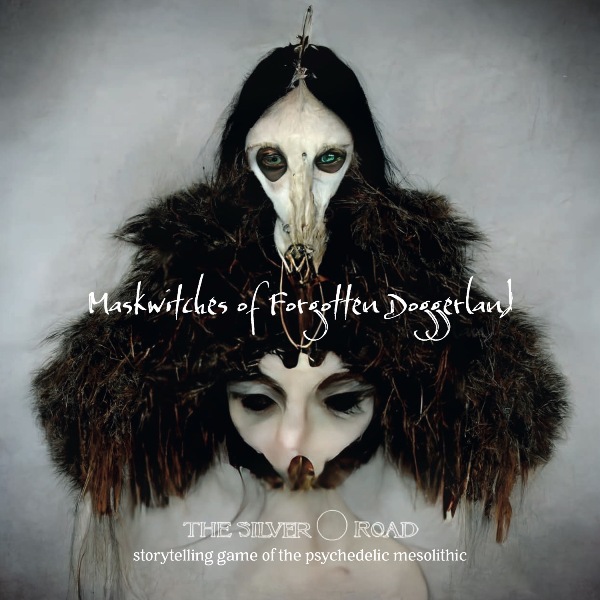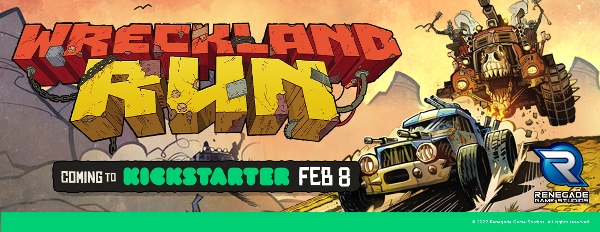Playtest Releases
By The Warden
I think we can all agree the market is absolutely flooded with options for the eager roleplayer. We’ve been talking about it for the past couple of weeks and as one of those desperate masses trying to shove yet another RPG down your throats, I have to admit it is fiercely competitive out there.
Releasing a new game – let alone a supplement or adventure – is much like releasing a blockbuster movie in the summer: you have one week to make your impact before another blockbuster comes along and pushes you out of top place. It’s rare for a single film to dominate for multiple weeks. Promoting your game in the weeks leading up to your product is vital to its potential success and while this may not be entirely new, some publishers seem to have taken to the idea of playtesting as marketing to a different level.
Many publishers are taking substantial effort to release – even sell – a playtest (or beta) version of their game before the finished product is ready. It’s beyond the standard demo copy offering a few chosen pages sampling the work you could own with just a few clicks of the mouse or taking the trip to your FLGS; it’s an opportunity to learn about the game and provide input for improvement before the finished product hits the shelves.
Offering a playtest sample of a game is nothing new. What I’m talking about are publishers actually selling – even if it’s available for free – copies earmarked as “playtest versions” through retail outlets rather than posting links on their websites.
PAY TO PLAY…TEST
 The biggest example is the latest incarnation of Star Wars in roleplaying form, Edge of the Empire from Fantasy Flight Games. At this year’s Gen Con, physical books with “Beta” clearly marked on the cover were available for sale. Let me clarify: the book was $30. For an unfinished game. Various comments on the unfinished product were mixed with the majority of them feeling overcharged considering the quality of the book’s production (a serious lack of artwork, for example).
The biggest example is the latest incarnation of Star Wars in roleplaying form, Edge of the Empire from Fantasy Flight Games. At this year’s Gen Con, physical books with “Beta” clearly marked on the cover were available for sale. Let me clarify: the book was $30. For an unfinished game. Various comments on the unfinished product were mixed with the majority of them feeling overcharged considering the quality of the book’s production (a serious lack of artwork, for example).
“The Star Wars: Edge of the Empire beta is a fully developed and playable product, and it includes all the rules and materials players need to enjoy countless games of Edge of the Empire.
However, it is important to note that some of the elements in this beta are not representative of the final product. The beta contains comparatively very little art, and nearly all of the background material has been removed to ensure a more concise playtest experience.”
– From Fantasy Flight Games’ website
This is not the first time a paid promotional product was released by a major publisher, though normally not as a near complete game. In early 2008, Wizards of the Coast released two softcover pre-release supplements discussing the design goals for D&D 4th Edition: Races and Classes, followed by Worlds and Monsters. These products provided essays by the various production teams discussing their thoughts, process, and goals of the game’s outcome rather than the mechanics themselves.
GOOD OLD-FASHIONED FREE PLAYTESTS
Paying for a playtest copy of a soon-to-be-released game remains the exception to the rule, as there’s no better promotion than free promotions. Offering free playtest versions of a game has been wildly successful for publishers (I’m sure we all remember the massive response to Paizo’s Pathfinder playtest, something WotC and now Iron Crown Enterprises are trying out with their latest editions of D&D and Rolemaster respectively) and gives the gaming public something we just seem to crave: input.
But it’s one thing for a major, recognized publisher to put out a playtest of their latest creation. It’s another matter altogether for a smaller, independent one to get any attention at all. Paizo, Wizards, and ICE rely on their existing fan base to go straight to their websites for potential customers to download a PDF and start playing. Everyone else must find a new way to capitalize on this incredibly useful tool without the fan base, causing them to release a free product on sites such as DriveThruRPG.
 Ambition & Avarice is the latest such playtest product to come into my radar. This OSR-inspired classic fantasy RPG is designed by Greg Christopher and released through his Chubby Funster banner for the sole purpose of gaining interest and input for a final product. Some of the content found within may change based on feedback provided by customers who purchase, read, and actually play the game. Even if you never go any further with it, this PDF has been given the love and attention of a game/graphic designer to work as a stand-alone product all its own.
Ambition & Avarice is the latest such playtest product to come into my radar. This OSR-inspired classic fantasy RPG is designed by Greg Christopher and released through his Chubby Funster banner for the sole purpose of gaining interest and input for a final product. Some of the content found within may change based on feedback provided by customers who purchase, read, and actually play the game. Even if you never go any further with it, this PDF has been given the love and attention of a game/graphic designer to work as a stand-alone product all its own.
A SENSE OF COMMUNITY
From a design standpoint, playtest drafts of an upcoming release tap into a massive resource this genre is known for: community. Recent events in game production and funding have demonstrated the effectiveness of going straight to the source for inspiration and input, all of which is merely an extension of forums scattered across the Internet. For years, players and GMs have been bitching, whining, and praising the mechanics and prose of nearly every game available, then developing their own hacks or house rules attempting to fix what they perceive to be problems. To paraphrase the old expression, everyone thinks they’re a game designer. And the funny thing about it is that we all are. These games demand it.
For a RPG to be effective and successful, it has to withstand the pounding our imagination puts on its rules and dice rolls. We’re not following a script; we’re discovering a story. While those of us involved in a project’s design can run as many playtests as we like at our table, it will always remain in our hands and therefore lose out on the potential for expansion and possibility.
For example, if your original design for a dungeon crawl RPG incorporates a healing mechanic whereby each character can only recover hit points once per day, this may seem viable and functional if you’re attempting to build a truly gritty system. It fits exactly what you had in mind for this style of game and has worked out at your table. If it goes into final production and a very interested public turns on it, your work has just been scrapped and time is spent scrambling to repair the PR damage. Sending it out to the public gives you an opportunity to learn in advance if everyone likes and wants their characters to only heal once per day. More importantly, it gives you opportunity to find out exactly why they don’t like it.
There’s almost never a downside to a public playtest. By putting it out there for the general public to try out at no financial cost, you’re demonstrating trust in your fans and automatically insinuating there’s room for change. They may condemn your healing mechanic within 24 hours, but there will be a lot of suggestions on how to adapt because no one who calls themselves a roleplayer simply gives up in the middle of a game. “Crap, this healing mechanic is too weak. Wrap it up, boys, I’ll get the Monopoly board.” That doesn’t happen. They’ll adjust on the fly and offer input. Responsibility then lies with the publisher to take that input and roll with it. Only if the problem is ignored will the game have a serious problem on its hands.
Even now, this is not the only possibility available to both publishers and players alike. Many websites and organizations provide services connecting game designers to playtesters, including this one. There are groups out there interested in nothing more than playtesting upcoming RPGs. Think of them as the soup kitchen volunteers of the industry – they do it because someone needs to make sure your character can heal more than once per day.


